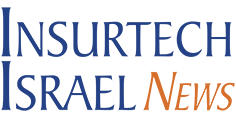Lemonade recently acquired Metromile for US$500m. Metromile operates in the motor insurance sector, and this acquisition will enable Lemonade to make the transition from a young player to a major player in this sector. This acquisition reflects just one trend in the ongoing revolution in the insurance market and shows that the leading insurtech companies continue to grow. To date, the global insurtech sector has raised more than US$10bn since the beginning of 2021, an all-time record.
A mapping of the Israeli insurtech companies that raised funds this year, prepared by Munich Re Israel representative Dikla Wagner, who leads technology scouting and innovations in the country, shows the recent investments in Israeli startups. 28 in all, they add up to US$1.5bn since the beginning of the year.
Most of the investments were in the range of US$11m to US$40m (14 deals) and totaled US$1.2bn. Most of the deals in the A and B rounds came from venture capital funds, both Israeli and international. In addition, the map includes a sampling of eight investments in companies that do not belong to “classic insurtech” but are developing technologies that can benefit the insurance sector, adding up to US$2.1bn since the beginning of the year. The Israeli insurtech ecosystem includes around 100 active companies and is home to unicorns such as Lemonade and Hippo. “Only three years ago, we still had to show entrepreneurs and investors the potential in insurtech and persuade them to enter the sector,” says Wagner, “but today, the approach has changed, and it can be said without a doubt that 2021 has been the best year ever for the Israeli insurtech industry.”
The mapping process shows that the companies leading the market continue to grow. For example, Next Insurance raised US$250m in round E, while At-Bay raised US$205m in round D. Also, insurtech unicorn Hippo Insurance went public through a US$5bn SPAC merger.
“The popularity of the MGA (Managing General Agents) model grew this year, as reflected in US$1bn spread across nine investments, and this popularity is expected to increase,” says Wagner, adding that many entrepreneurs are attracted to the sector due to the success of the largest companies. “One of the questions this raises is whether the MGA model has truly disrupted the market, and whether in the future it will become a profitable tool for primary insurance companies and reinsurers, and not just for investors.”
The startups GeoX, OKO and Previsco, which also raised money in the past year, point to another trend – an increase in the use of geospatial and satellite imagery: “This is a worldwide trend which can also be seen in Israel, thanks to the increased access to information of this type and the reduced costs. The data gathered by these means is used in underwriting processes and in claims handling,” says Wagner.
The map also shows eight risk mitigation companies. Though not necessarily part of the “classic insurtech” ecosystem, these companies are developing advanced technologies for data gathering and analysis, which means they have the potential to contribute added value in the insurance field. Their relevance is also growing because of a transition that can be seen in the market, away from a defensive approach (passive underwriting) to one based on risk prevention and mitigation (proactive risk management).
“Israel has always been home to early-stage startups, and the trend is now repeating itself in the insurtech market. Many startups build their capabilities within Israel’s borders, raise initial capital and then start looking for growth horizons outside the country. We are certainly on the way to becoming a fintech superpower. The local insurtech market is undergoing the same changes and developments that we saw in Israel’s cyber market in the past, until we became the leading cyber nation. I believe the insurtech market is now poised for meteoric.

Dikla Wagner, Munich Re’s head of tech scouting



